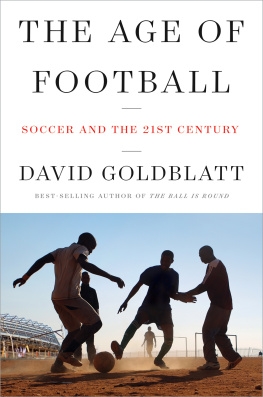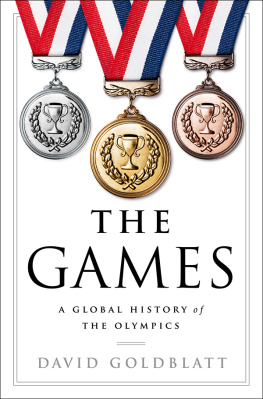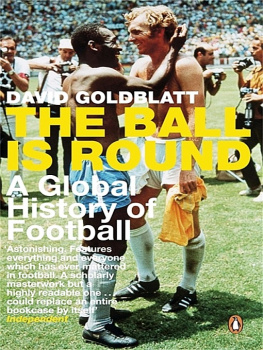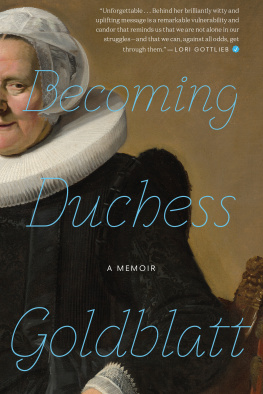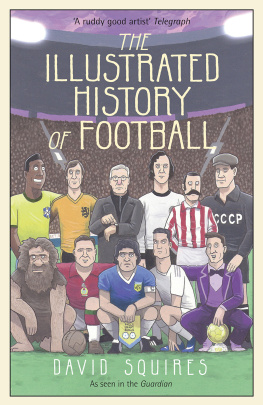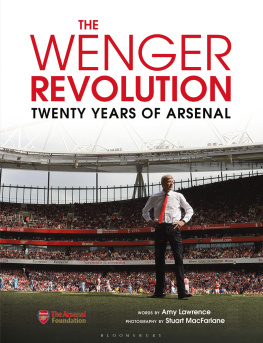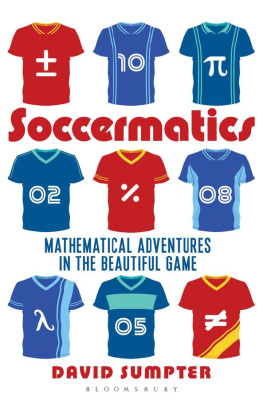Contents
Guide
Page List
Also by David Goldblatt
THE BALL IS ROUND
THE FOOTBALL BOOK
THE GAME OF OUR LIVES
FUTEBOL NATION
THE GAMES
THE AGE OF
FOOTBALL

SOCCER AND
THE 21ST CENTURY

DAVID GOLDBLATT

CONTENTS
Introduction:
Football Is First
1.THE LIVING AND THE DEAD:
Afro Football Fever
2.REGIME VS STREET VS MOSQUE:
Three-sided Football in the Middle East
3.FROM THE LEFT WING:
South American Ftbol and the Pink Tide
4.THIS STORM IS WHAT WE CALL PROGRESS:
Football and the European Project
5.CONTINENTAL DRIFT:
The Fragmented Worlds of Asian Football
6.TROUBLE IN PARADISE:
Football in the Americas
7.THE GAME BEYOND THE GAME:
The Fall of the House of Blatter
8.BACK IN THE USSR?
Football in Putins Russia
Conclusion:
The Global Potemkin Village: World Cup 2018
Football is first.
The craziness around football is second.
Then there is the rest of the world.
Carlos Monsivis
The spectacle is not a collection of images, but a social relationship amongst people, mediated by images.
Guy Debord
I
Carlos Monsivis, the late essayist and critic, was referring to the mental and emotional priorities of the Mexican press and public during the World Cup, the tournament invariably coinciding with elections to either the Senate or the Presidency itself. Extraordinary as this is, that the fate of the national football team should, for even just a month, eclipse such important political moments, and true as this is for many polities and publics, Monsivis epigram speaks to a more general and even stranger truth.
Football is first.
First amongst sports themselves, first amongst the worlds popular cultural forms. The game is able to command the allegiance, interest and engagement of more people in more places than any other sport. The World Cup has superseded the Olympics as the spectacle of all spectacles. The NFL might just remain the biggest single-sport league financially, but European football alone has entirely outstripped its revenues and global reach, and the gap is only going to get bigger. In the three most populous nations of the earth China, India and the United States, where just twenty years ago football held a very peripheral place in the sporting and popular cultural landscape it has now arrived for good. In China the party has made the game the measure of the nations development. In the United States it gathers a coalition who see a version of the nation that is normal, not exceptional; playing others rather than dominating them. In India it is emerging from beneath the blanket obsession with cricket of the last few decades as a new marker of cosmopolitanism and class distinctions.
If footballs place in global sporting culture has become almost unassailable, its weight, relative to other cultural forms and industries, has also sharply risen. It bears comparison with the worlds religions, not as a system of belief or alternative metaphysics, but in the scale, regularity and profundity of its cycles and rituals. Its economic footprint is hardly titanic, but European football now turns over more revenue than the European publishing or cinema industries. The games attraction to global corporations as a vector for their brands seems unquenchable, ensuring its presence and imagery is multiplied many times over. It is an object of desire for television networks across the world. Indeed, even Amazon and Facebook, recent purchasers of football media rights, have decided that they need football more than football needs them. The level of mainstream and social media coverage accorded the game is simply vast and unending. The game attracts, at its peak, audiences that dwarf other sports, shows and genres; and when it does so, it gathers eyes and minds in acts of collective imagining like no other spectacle on offer. Everywhere, as it has for over a century, football creates and dramatizes our social identities, our amities and our antipathies. No other sport, no popular cultural form, has been subject to this degree of adulation. Football is first: the most global and most popular of popular cultural phenomenon in the twenty-first century.
In Monsivis reading of the game, football serves primarily as a distraction from the real world of Mexican politics and the countrys economic and social problems. Worse, it evokes hysteria rather than the clear-eyed reasoned thinking the latter demand. This is not an unreasonable interpretation of Mexicos relationship to football, or the rest of the worlds. Football is often a distraction; in some ways that is the point: the games locus as a place of emotional refuge, escape and otherworldliness has long been part of its purpose and pleasures. Certainly, there is no shortage of irrational, myopic, deluded and obsessive behaviour in the football world. Interpreted in this light football is rendered as a twenty-first-century version of the Roman Circus, a crude but effective instrument of rule that distracts and disables popular consciousness.
True, but the idea that the real world is actually sealed off or absent from the worlds of football and the craziness around it cannot stand. In fact, the real world of economic and political power is more present in football than ever before and, though it hides itself in a thousand ways, there is actually no greater or more transparent public theatre for exposing these forces at work. At the same time the craziness around the game should not be understood as just self-consciously ignorant hedonism and reverie. One can also read the games irrationality not as a form of madness, but as a deeply felt refusal to accept the presence of the real world in the game as legitimate, or to allot it the seriousness it commands. Football fever can serve as a collective insistence that there are other moral logics and priorities in this world, different from and more human than the ones we so blithely award the soubriquet of the real.
Guy Debord, the melancholy kingpin of the Situationist International, recognized that presence of social relationships inside the modern media spectacle. Indeed, in his brilliant, aphoristic Society of the Spectacle, he came to define the phenomenon in precisely that way. The media spectacle, whatever its content, would, he predicted, bind great networks of people and institutions together by the mere consumption of imagery, and in so doing establish new relationships of domination and control. The spectacle would not just distract but commodify, blind and stupefy too. Moreover, whatever spontaneous authenticity and lived reality the subject of the spectacle might possess to begin with be it a musical performance, religious ceremony or game of football it would inevitably be reshaped by the forces of commerce and power to create a simulacrum, an ever more perfect and ever more fabricated, deracinated version of the real.
Written in the mid-1960s, an era of deep somnolence in French football, Debords work gives no indication that football would furnish the pinnacle of the modern spectacle. Had he done so, he might not have drawn such bleak conclusions, for Debord and the Situationists were alert to the subversive potential of play and games. His Danish colleague, the artist Asger Jorn, invented the notion of three-sided football as a challenge to ludic orthodoxy, and as an experiment in non-binary models of social interaction, while Debords own Game of War was an avant-garde satire on the table-top board game. Football can and does nurture monomania, ignorance, atavistic loathing and mindless stupefaction, but that does not exhaust its repertoire.

